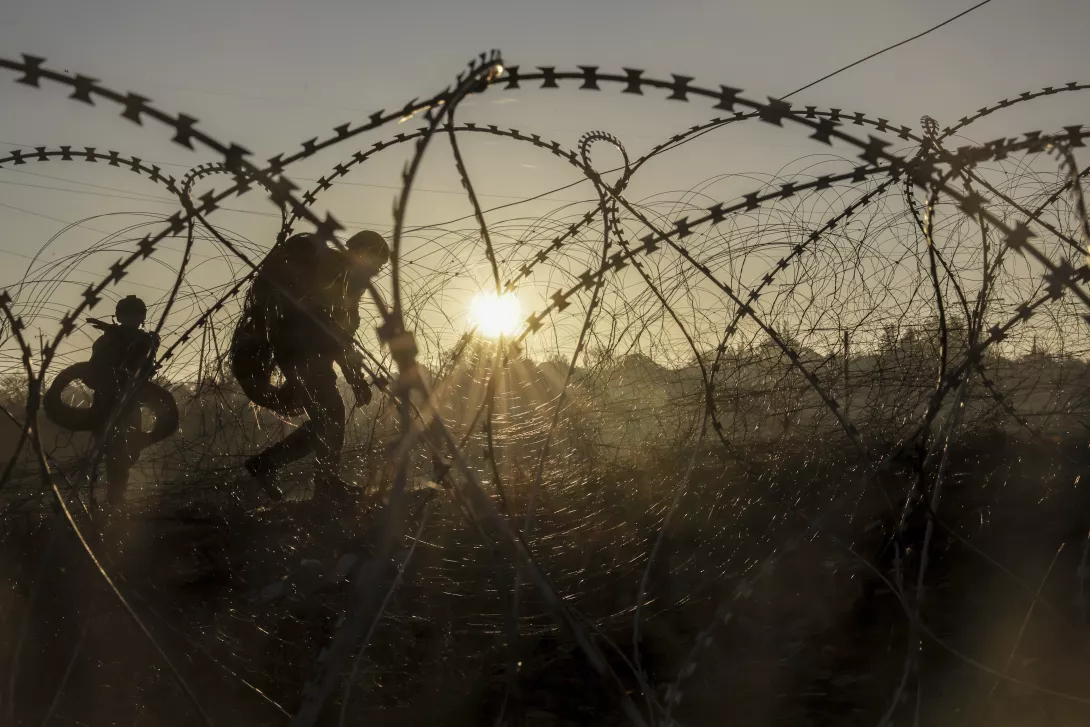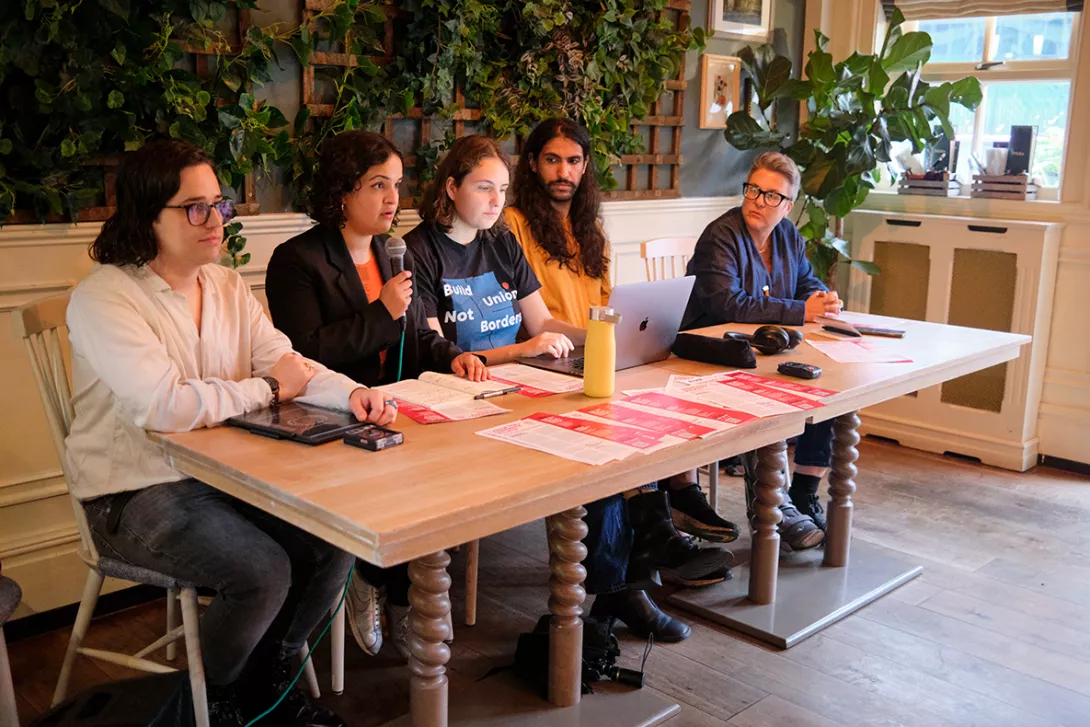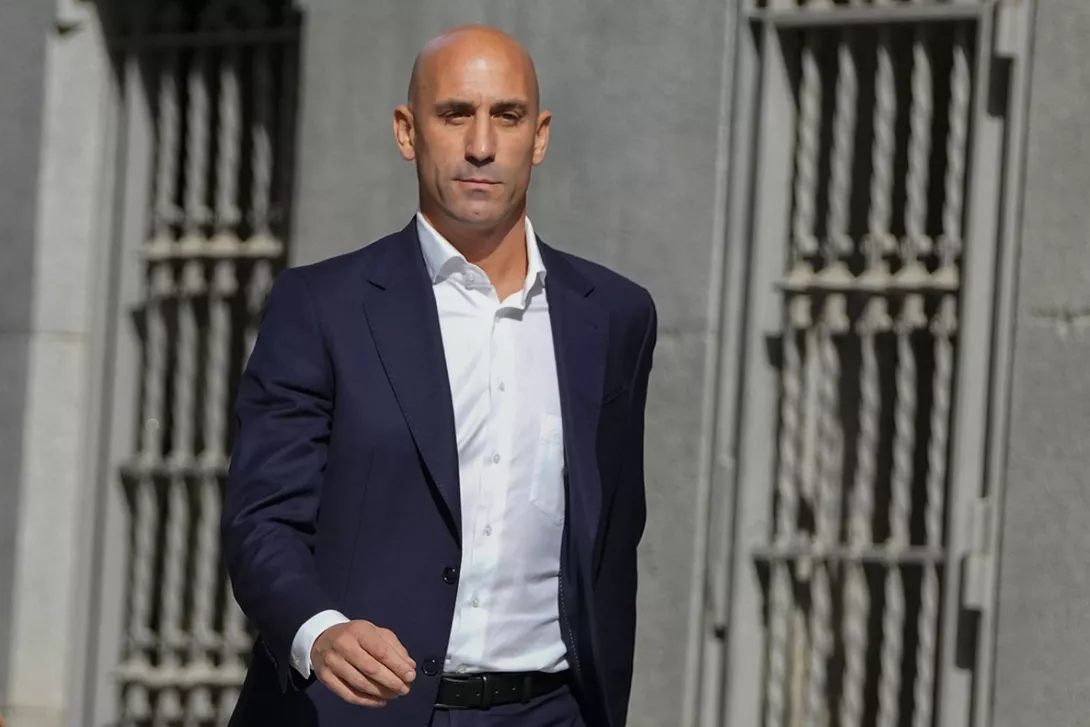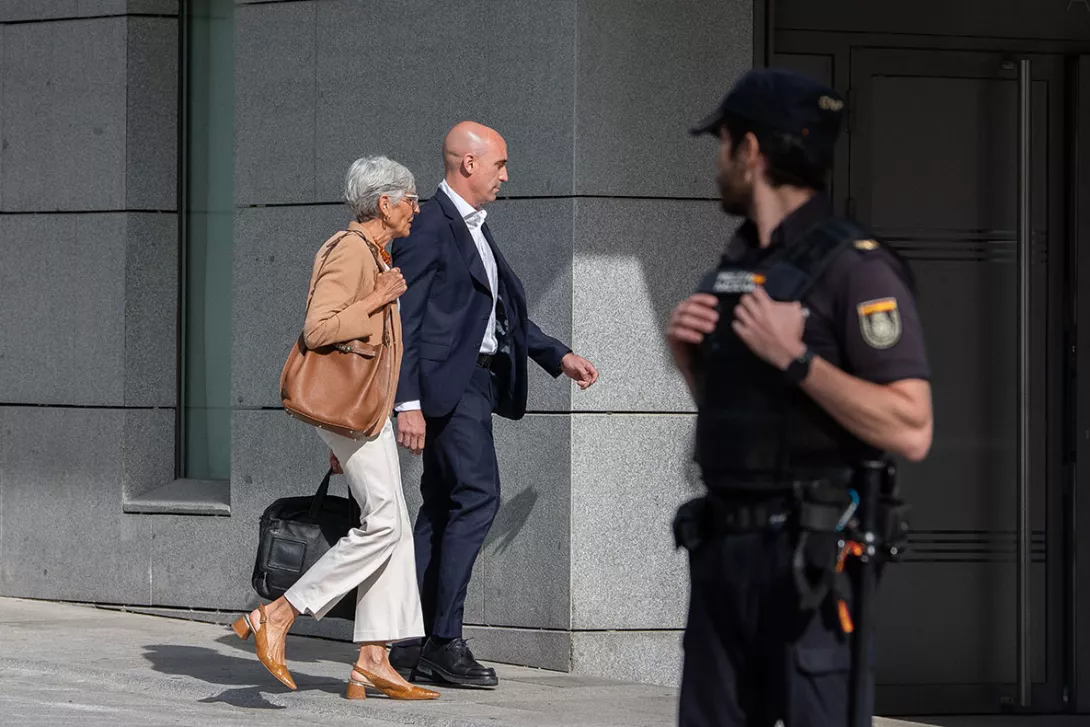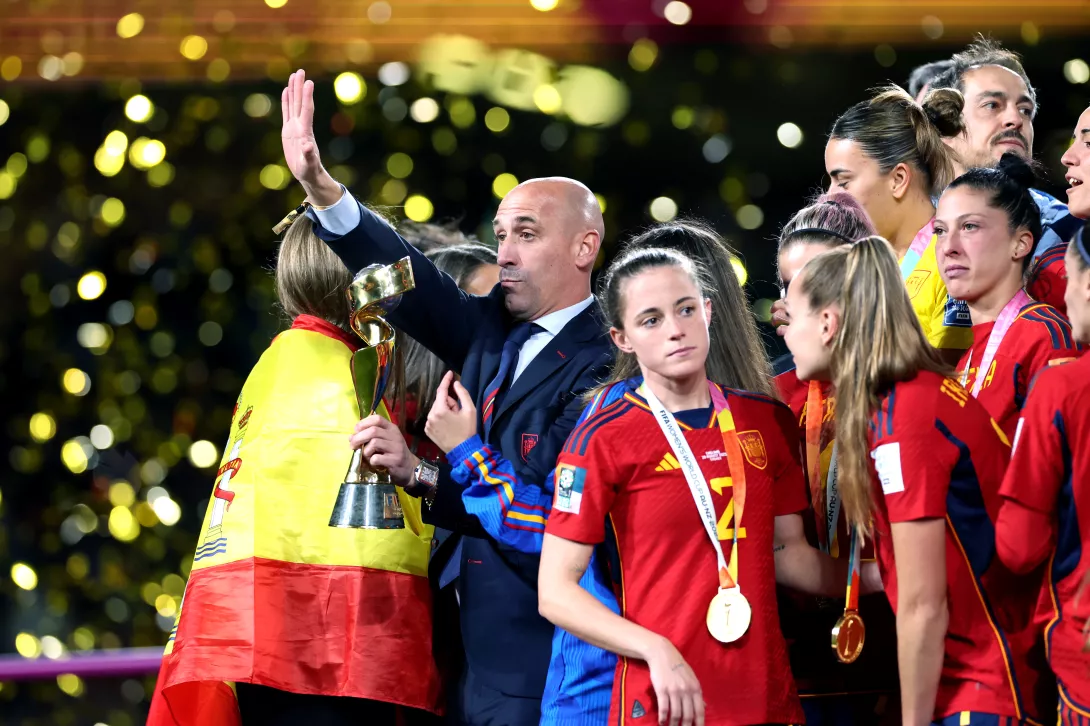
THE SPANISH player kissed on the lips by the football president at the Women’s World Cup final appeared in court torday to testify in the sexual assault case against the former official.
Jenni Hermoso was at the Madrid court to give her version of the kiss by Luis Rubiales following Spain’s victory over England in the final in Sydney in August.
“Everything went well,” Hermoso told reporters afterwards. “The judicial process will continue its course, and thanks for the support that many of you had given to me.”
The incident sparked outrage across the football world and ignited one of the worst crises in the history of the sport in Spain.
It also led to a boycott of the national team by the World Cup-winning players, and to the eventual resignation of Rubiales despite his denial of wrongdoing and his allegation that the kiss was consensual.
Hermoso’s testimony was given behind closed doors. But she likely reiterated in court her allegations that the kiss was unwanted, and that Rubiales and his staff put pressure on her and her family to downplay the incident that tarnished Spain’s first Women’s World Cup title.
Spanish media said Hermoso asked the judge to keep her court appearance as private as possible.
Spanish state prosecutors accused Rubiales of sexual assault and coercion, alleging he tried to convince Hermoso and her relatives to publicly downplay the kiss.
The judge is also hearing testimony from other World Cup-winning players, coaches and federation officials, before deciding whether to start a trial.
Rubiales previously denied wrongdoing to the judge, who imposed a restraining order on him not to contact Hermoso.
The 33-year-old Hermoso, the record scorer for Spain’s women’s team, said last year she received threats in the fallout from the kiss, though she did not elaborate.
Hermoso became something of a celebrity in Spain after coming forward to denounce the kiss and help promote a “Me Too” movement in the country. She was one of the New Year’s Eve presenters on public television on Saturday, calling for a 2024 with more equality.
The boycott of the national team ended last year after players were given guarantees of change within the federation following the intervention of government officials.
Based on a sexual consent law passed last year, Rubiales could face a fine or a prison sentence of one to four years if found guilty, according to the prosecutors’ office in Madrid.
The new law eliminated the difference between “sexual harassment” and “sexual assault,” sanctioning any non-consensual sexual act.
Fifa banned Rubiales for three years until after the men’s 2026 World Cup. His ban will expire before the next women’s tournament in 2027.
He resigned as the federation president and as a Uefa vice president on September 10 amid mounting pressure in Spain from politicians and players.
One day later, Uefa thanked Rubiales for his service.







